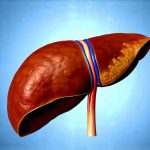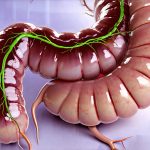The liver, often called the body’s detoxification powerhouse, tirelessly works to filter toxins, metabolize nutrients, and support overall wellbeing. It’s an incredibly resilient organ, capable of regeneration, but constant exposure to environmental pollutants, poor dietary choices, excessive alcohol consumption, or certain medications can place a significant burden on it. Many people turn to supplements hoping to bolster their liver health, believing they offer a shortcut to optimal function. However, the supplement industry is complex and often lacks stringent regulation, meaning quality control can be inconsistent and potential risks exist. Choosing safe and effective supplements requires careful consideration, informed decision-making, and a healthy dose of skepticism.
This article aims to provide you with a comprehensive guide to navigating the world of liver health supplements. We’ll explore what to look for—and what to avoid—to ensure you’re supporting your liver in the safest way possible. It’s vital to understand that supplements are not replacements for healthy lifestyle choices like a balanced diet, regular exercise, and limiting alcohol consumption; they should be considered potential adjuncts to an already robust self-care routine. We will focus on evidence-based approaches and highlight the importance of professional medical guidance before starting any new supplement regimen.
Understanding Liver Health & Supplementation
The liver’s role extends far beyond detoxification. It plays a critical part in digestion, energy storage, immune function, and hormone regulation. When liver health is compromised – by conditions like non-alcoholic fatty liver disease (NAFLD), hepatitis, or cirrhosis – these functions can be impaired, leading to a wide range of health problems. Supplementation shouldn’t be viewed as a cure for liver disease; rather, it might support overall function in conjunction with medical treatment and lifestyle adjustments prescribed by your healthcare provider. Many supplements marketed for “liver cleansing” lack scientific backing and could potentially do more harm than good.
It’s crucial to remember that the supplement industry isn’t as tightly regulated as pharmaceuticals. This means ingredients, dosages, and manufacturing processes can vary significantly between brands. Some supplements may contain contaminants, incorrect dosages, or even ingredients not listed on the label. Third-party certifications from reputable organizations (discussed later) are one way to mitigate these risks. Furthermore, what works for one person may not work for another, as individual needs and sensitivities differ. Before considering any supplement, it’s essential to identify your specific concerns and consult with a doctor or registered dietitian to determine if supplementation is appropriate for you and which options might be the most suitable.
Supplements are often categorized based on their purported mechanism of action – some aim to protect liver cells from damage (hepatoprotective), others support detoxification pathways, while still others focus on reducing inflammation. Common ingredients found in liver health supplements include milk thistle, artichoke extract, turmeric/curcumin, N-acetyl cysteine (NAC), and choline. However, the scientific evidence supporting their effectiveness varies widely, and more research is often needed to fully understand their benefits and potential side effects.
Navigating Supplement Labels & Third-Party Certifications
Decoding supplement labels can be daunting. Beyond just looking at the ingredient list, pay close attention to several key factors: – Dosage: Is it within a safe and effective range? Look for evidence-based dosages supported by research. – Form: Capsules, tablets, powders, or liquids – each has different absorption rates and potential benefits. – Ingredients: Are there any fillers, binders, or artificial additives you want to avoid? – Manufacturing practices: Does the manufacturer adhere to Good Manufacturing Practices (GMP)?
However, simply reading the label isn’t always enough. This is where third-party certifications become invaluable. These independent organizations test supplements for purity, potency, and contaminants. Look for seals of approval from: – USP (United States Pharmacopeia) – NSF International – ConsumerLab.com – UL (Underwriters Laboratories)
These certifications don’t guarantee a supplement will work, but they provide assurance that what’s on the label is actually in the bottle and free from harmful substances. Be wary of supplements making exaggerated claims or promising miracle cures; legitimate products typically avoid such marketing tactics. It’s also important to note that even with third-party certification, it’s still possible to experience side effects or interactions with medications.
Potential Risks & Interactions
Supplements are not without risk. Even “natural” supplements can interact with medications, exacerbate existing health conditions, or cause adverse effects. For example, milk thistle, while generally considered safe for most people, may interact with certain diabetes medications and blood thinners. Turmeric/curcumin, though beneficial for inflammation, can interfere with anticoagulant drugs. N-acetyl cysteine (NAC) might not be suitable for individuals with a history of asthma or bleeding disorders.
Always inform your doctor about any supplements you are taking, especially if you have underlying health conditions or are on medication. Certain supplements can also place additional strain on the liver itself, potentially worsening existing problems. High doses of vitamins A, D, E, and K – which are fat-soluble and stored in the liver – can be toxic to the organ over time. Similarly, excessive iron supplementation can lead to iron overload, damaging liver cells.
It’s essential to start with a low dose and monitor for any adverse effects. Discontinue use immediately if you experience symptoms like nausea, vomiting, abdominal pain, jaundice (yellowing of the skin or eyes), or fatigue. Remember that self-treating can be dangerous; professional medical guidance is paramount when it comes to liver health and supplementation.
Prioritizing Lifestyle Factors for Liver Health
While supplements may offer some support, they are no substitute for a healthy lifestyle. The most effective way to protect your liver is to adopt habits that minimize its burden and promote its natural regenerative capabilities. These include: – Balanced Diet: Focus on whole, unprocessed foods – fruits, vegetables, lean proteins, and healthy fats. Limit processed foods, sugary drinks, and excessive fat intake. – Hydration: Drink plenty of water throughout the day to help flush out toxins. – Moderate Alcohol Consumption: If you drink alcohol, do so in moderation (as defined by health guidelines). Excessive alcohol consumption is a leading cause of liver damage. – Regular Exercise: Physical activity helps reduce inflammation and improves overall metabolic function. – Avoid Toxins: Minimize exposure to environmental pollutants, pesticides, and harsh chemicals.
Furthermore, managing existing health conditions like diabetes and obesity is crucial for liver health. These conditions often contribute to NAFLD, which can lead to more serious liver disease if left untreated. Regular check-ups with your doctor are also essential for early detection and management of any potential problems. Proactive care is always preferable to reactive treatment when it comes to maintaining optimal liver function. Don’t rely on a quick fix; focus on building sustainable, healthy habits that support your liver’s long-term wellbeing.


















